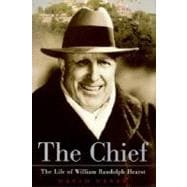
Note: Supplemental materials are not guaranteed with Rental or Used book purchases.
Purchase Benefits
What is included with this book?
| Acknowledgments | vii | ||||
| Preface | xiii | ||||
| I. GREAT EXPECTATIONS | |||||
|
3 | (20) | |||
|
23 | (16) | |||
|
39 | (28) | |||
| II. PROPRIETOR AND EDITOR | |||||
|
67 | (15) | |||
|
82 | (13) | |||
|
95 | (30) | |||
|
125 | (20) | |||
| III. PUBLISHER, POLITICIAN, CANDIDATE, AND CONGRESSMAN | |||||
|
145 | (23) | |||
|
168 | (18) | |||
|
186 | (16) | |||
|
202 | (12) | |||
|
214 | (13) | |||
|
227 | (14) | |||
| IV. OF WAR AND PEACE | |||||
|
241 | (19) | |||
|
260 | (17) | |||
|
277 | (10) | |||
|
287 | (16) | |||
|
303 | (12) | |||
|
315 | (13) | |||
|
328 | (9) | |||
| VI. THE KING AND QUEEN OF HOLLYWOOD | |||||
|
337 | (14) | |||
|
351 | (11) | |||
|
362 | (15) | |||
|
377 | (21) | |||
|
398 | (11) | |||
|
409 | (14) | |||
| VII. THE DEPRESSION | |||||
|
423 | (14) | |||
|
437 | (15) | |||
|
452 | (17) | |||
| VIII. NEW DEALS AND RAW DEALS | |||||
|
469 | (19) | |||
|
488 | (12) | |||
|
500 | (27) | |||
| IX. THE FALL | |||||
|
527 | (16) | |||
|
543 | (21) | |||
|
564 | (11) | |||
|
575 | (29) | |||
| Epilogue | 604 | (5) | |||
| Notes | 609 | (48) | |||
| Index | 657 |
The New copy of this book will include any supplemental materials advertised. Please check the title of the book to determine if it should include any access cards, study guides, lab manuals, CDs, etc.
The Used, Rental and eBook copies of this book are not guaranteed to include any supplemental materials. Typically, only the book itself is included. This is true even if the title states it includes any access cards, study guides, lab manuals, CDs, etc.